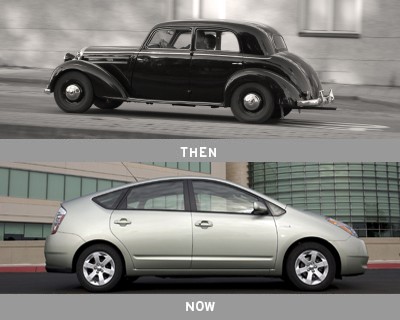3 Brazilian Stocks to Invest In NowKiplinger
Post on: 14 Июнь, 2015 No Comment

ADRs and ETFs offer exposure to a trio of companies in the promising consumer goods, financial and infrastructure sectors.
As the economies of the developed world struggled over the past five years, investors poured billions of dollars into Brazil and the other so-called BRIC nations: Russia, India and China. These emerging markets are home to a big share of the world’s natural resources, young working-age populations and rising household incomes. Yet in recent months investor sentiment has soured. Is it time to join the flight?
See Also: Why to Buy Emerging Markets Now
Rising incomes have helped fuel Brazil’s decade-long growth. The biggest Latin American economy has emerged as an important new consumer market, with 29 million people joining the ranks of the middle class between 2003 and 2009. Today more than 50% of the population — 95 million Brazilians — are living in middle-class households, according to a study by the private research group Getulio Vargas Foundation. By 2020, the Boston Consulting Group projects that upper-middle-class and affluent families will make up 37% of Brazilian households, compared with 29% in 2010.
The key to investing in Brazil now is targeting companies in the right sectors. Demographic trends point to opportunities in consumer staples, finance and infrastructure. Three Brazilian companies, in particular, are well positioned to benefit from the growth of these sectors. U.S. investors can buy the American depositary receipts of two of the companies. ADRs, which trade on U.S. exchanges, represent a specific number of shares of a foreign stock. Mutual funds and exchange-traded funds that focus on Brazil, Latin America or emerging or foreign markets also hold Brazilian stocks. Aggressive investors can load up on ADRs; alternatively, buy shares of funds that are heavily invested in these stocks for more diversification. (Prices and returns are as of Oct. 31, 2013.)
Brasil Foods. The growing power of the Brazilian purse spells opportunity for many consumer-products companies, especially food companies. Big meat processors are expanding to feed the appetites of Brazil’s middle class as well as export markets. We have always been a big commodities producer, and in the last years we have been able to produce animal protein with highly competitive costs, says Victor Martins, investment analyst at São Paulo-based Planner Corretora de Valores brokerage. Many of these companies’ stocks definitely have an upside potential.
A good bet in the sector is Brasil Foods (symbol BRFS ) one of the world’s largest beef and poultry producers. It also produces pork, dairy and processed foods. Exporting to more than 120 countries, the company’s sales outside Brazil accounted for 41% of its $12.6 billion in net revenues recorded in 2012. The ADRs recently traded at $23.43, 11% below the 52-week high. Brasil Foods is one of the top five holdings of the Global X Brazil Consumer ETF (BRAQ ).
Itau Unibanco Holding. The financial sector is also poised to prosper from rising consumer demand. Credit to Brazilians expanded more than 130% between 2006 and 2010, according to the Brazilian Banks Federation. Bank transactions increased 37% in the same period. Yet access to and usage of financial services in Brazil is still low compared with developed countries. But that shows that there is a big potential of growth for this sector, says Martins. Each year, more people start to use the financial system and buy its products, such as [insurance].

Take a look at Itau Unibanco Holding (ITUB ). the biggest banking company in South America. In addition to Brazil, it operates in Chile, Uruguay and Argentina, as well as in Europe. The ADRs recently traded at $15.40, 11.2% off the 52-week high. Itau is one of the top holdings of the Global X Brazil Financials ETF (BRAF ), making up nearly 10% of net assets, The bank is also the top holding of the popular iShares MSCI Brazil Capped ETF (EWZ ), at nearly 8% of net assets. Harbor International (HIINX ), a member of the Kiplinger 25. owns $443 million worth of Itau shares, making it the company’s second-biggest mutual fund investor.
CCR. With higher wages, more consumer purchasing power and more access to credit, Brazilians are demanding more economic improvements. Witness the protests sweeping Brazil since June, with thousands of people calling for better education, public transportation and health care. In response, the Brazilian government has vowed to invest more in public transit &mdash: a promise tied to Brazil’s hosting of the 2014 World Cup and the 2016 Olympics. As a result, Sacconato says, successful bidders on infrastructure projects will have more predictable cash flow, which should make infrastructure stocks attractive for investors.
CCR, also known as Companhia de Concessoes Rodoviarias, is positioned to benefit from increased infrastructure spending. It already manages highways in Brazil, operates one line of the São Paulo metro and runs three airports outside the country. There are no ADRs for U.S. investors, but the EGShares Brazil Infrastructure ETF (BRXX ) offers exposure to a range of infrastructure plays. CCR is the ETF’s number-two holding. At $18.72, EGShares Brazil Infrastructure is 16% off its 52-week high. The iShares MSCI Brazil Capped ETF and the Fidelity Latin America (FLATX ) mutual fund also hold significant stakes in CCR.
Investing in Brazil comes with risk. Brazilian economic growth has averaged 3% annually over the past five years &mdash: good but well shy of the torrid 10%-plus rates of China and India, And investors fear inflation will exceed the official target range of 2.5% to 6.5% set by the government. Brazil’s Ibovespa stock-market index is down 11% so far in 2013, even as the S&P 500 has gained 25%.
Still, Brazil offers intriguing stocks beyond the traditional picks of Vale (VALE ), the mining conglomerate, and Petrobras (PBR ), the national oil company. The expanding middle class, in particular, should create growth opportunities for many companies for years to come. Even with some challenges, if you are thinking of the long-term results, there are many interesting conditions in the Brazilian economy, says Sacconato.














